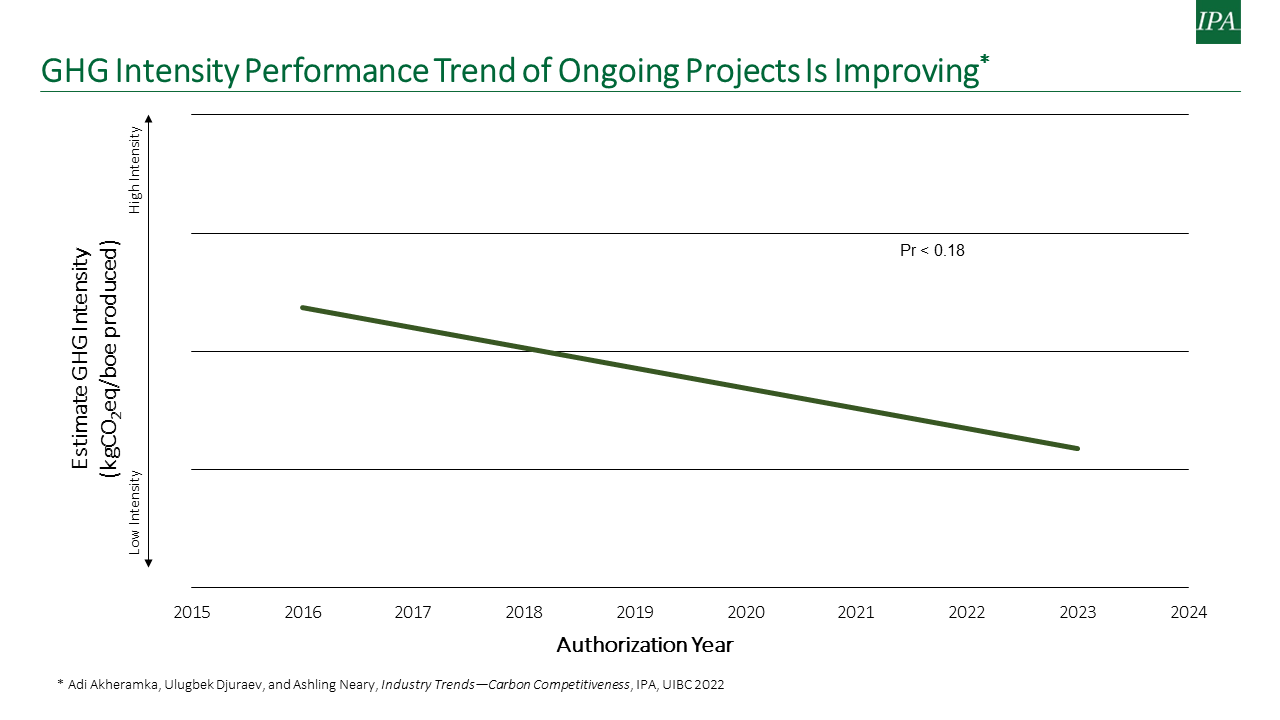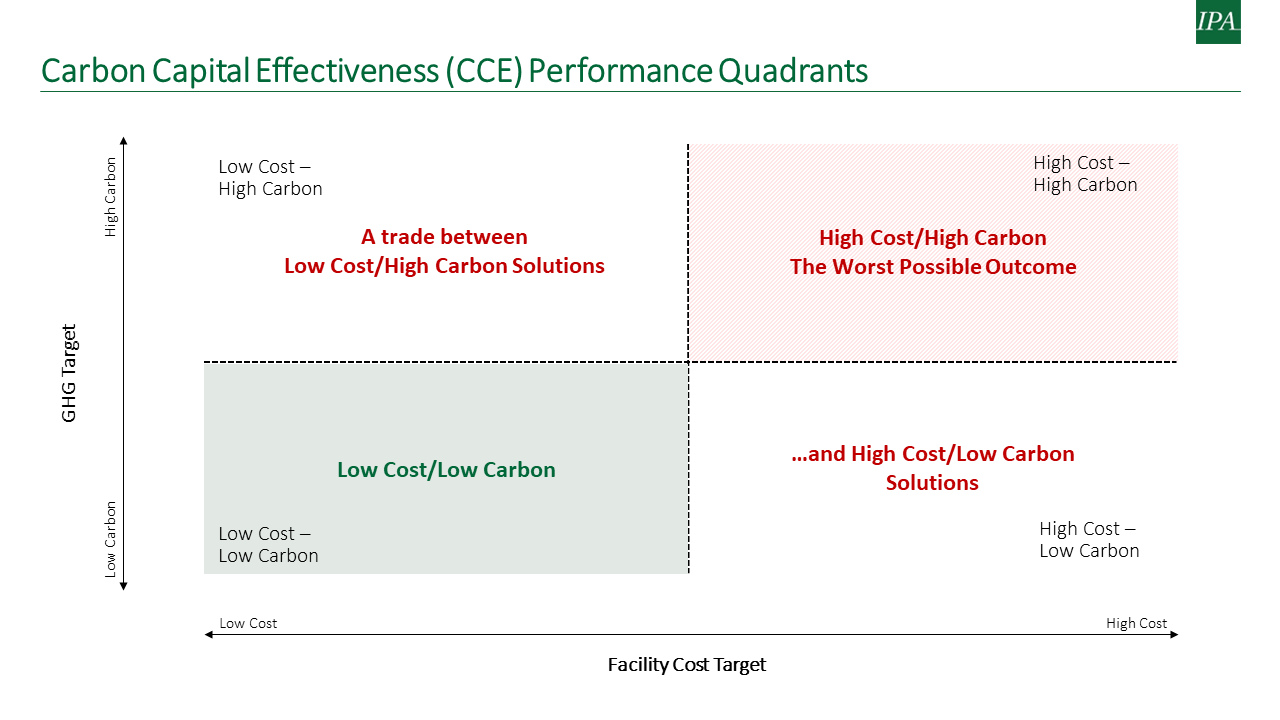Decarbonization Insights for Offshore Oil and Gas Projects
On November 1, 2023, Independent Project Analysis (IPA) sustainability experts Paul Barshop and Adi Akheramka led a live webinar on Strategies for Decarbonization and Improving GHG Performance. More than 300 people registered for the Offshore Magazine-hosted session to hear IPA’s insights on the significant progress the oil and gas industry has made in meeting the challenge of lowering emissions while sustaining cost competitiveness. Continue reading for highlights from the webinar, including insights on driving continued improvement for oil and gas projects going forward.
Building a GHG Emissions Database
Adi Akheramka, IPA’s Carbon Management & Sustainability Manager, kicked off the webinar by detailing how IPA has managed to build a robust database for measuring and researching greenhouse gas (GHG) emissions performance over the last several years. In 2019, IPA surveyed project teams from owner companies about the GHG emissions guidelines they were using. This survey brought forward 15 different GHG emissions estimation guidelines used by the 12 responding companies. The Carbon Working Group (CWG) was formed soon after, and IPA worked with the 35+ member companies to develop an industry-standard project-level emissions breakdown structure. Since 2020, IPA has used this structure to collect emissions data directly from project teams, build a growing database of emissions estimates, and use the data to guide competitiveness improvements for capital projects.
GHG Performance Trends
The GHG emissions database provides a window into industry performance. IPA has observed that new exploration and production (E&P) projects are estimated to be 45 percent less carbon intensive compared to 2016, a mark of significant improvement as more companies embarked on low carbon journeys. Additionally, a few companies have proven successful in achieving both low carbon and low cost in recent years. However, the E&P industry still has a long way to go because most companies are trading cost for carbon or carbon for cost—resulting in poor results for both. The key question companies must answer going forward is, “How can we lower emissions while sustaining cost competitiveness?”

Carbon Capital Effectiveness (CCE)
Paul Barshop, IPA’s Global Director of Sustainability, continued the webinar by discussing how project teams can better balance cost and emissions competitiveness. The Carbon Capital Effectiveness (CCE) framework compares the estimated emissions and costs for different project development options/alternatives—relative to similar projects/concepts within the industry and within a company’s own portfolio. Understanding the carbon competitiveness and cost competitiveness of all available options enables decision makers to confidently select the right scope to meet the desired business objectives for a given project.

Emerging Carbon Optimization and Readiness Practices
Through research, IPA has identified a set of practices that enable projects to balance CAPEX and carbon emissions. These practices include setting clear objectives and targets, appointing a GHG specialist on the team, ensuring input maturity, establishing clear methodologies, and managing risk. IPA has observed that the oil and gas industry is increasingly adopting these practices, leading to positive results. That is, these identified practices do help projects land in the low cost/low carbon quadrant rather than trading one for the other—or failing to achieve either. IPA and the Carbon Working Group will continue to add observations to sharpen the findings.
Managing the Strategic Change
Strong change management will be required to adopt and use carbon optimization and readiness practices consistently across a company’s entire project portfolio. Barshop noted that four key elements of change management, in particular, can help drive sustained improvement:
- Leadership from Top Management
- Support for Project Teams
- Performance Management
- Governance
Request More Information
If your company is interested in tailored strategies and measurable performance indicators for sustainability and carbon reduction on capital projects, complete the form below to start a discussion with IPA.